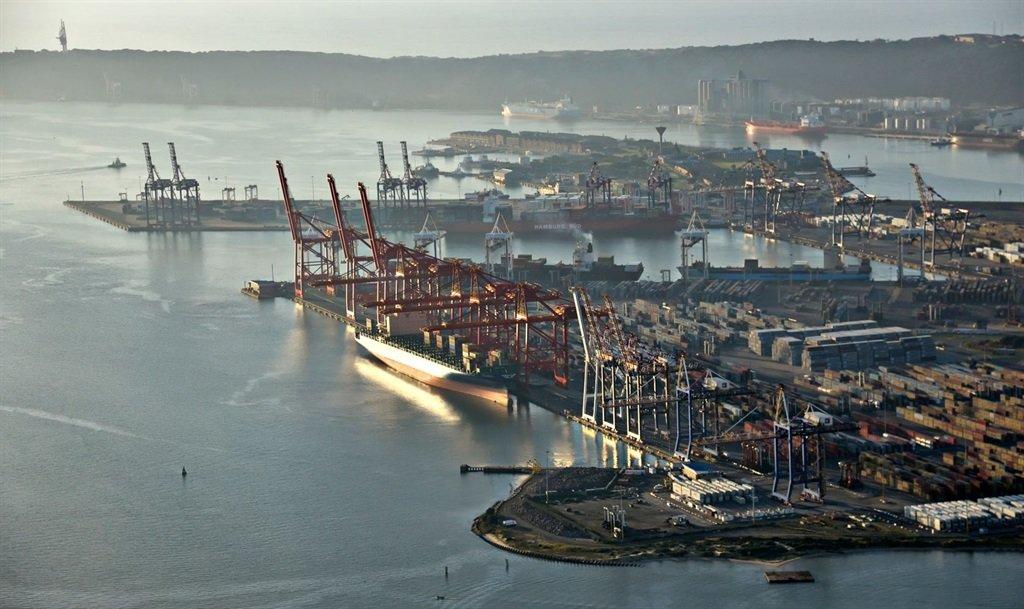Africa-Press – South-Africa. Hoping to avert industrial action, Transnet wanted to impose an “avoidance of strike” levy on companies, Business Unity SA (BUSA) and Business Leadership SA (BLSA) say.
The money apparently would have been used to help fund a sweetened wage offer to employees. The levy, which would have been enforced from October, would have been conditional on Transnet avoiding a strike.
“Transnet has proposed an ‘avoidance of strike levy’, which Transnet has sought to impose from the start of October and was put forward by Transnet, without any engagement with BUSA or BLSA,” the two organisations said in an addendum to a strike-related statement.
“We have also had sight of a letter from Transnet to relevant businesses, dated 29 September 2022, indicating they [it] charge an additional levy for the period 1 October 2022 to 31 March 2023.”
Transnet spokesperson Ayanda Shezi told News24 Business that there was an “offer from industry to pay a levy which was conditional upon averting a strike”. She said the details of tariffs were commercially sensitive information and could not be distributed beyond Transnet and its customers.
BUSA CEO Cas Coovadia said: “Transnet has retracted the increased levy and indicated [it] will continue to discuss this with users of ports.”
It was previously reported that the business sector offered an additional levy of R148 per container for Transnet’s terminal handling charges to help subsidise the gap between Transnet’s wage offer and striking unions’ demands. However, the country’s two major business lobbies – BUSA and BLSA – clarified that only some businesses had offered to pay the levy.
On Monday, BLSA CEO Busisiwe Mavuso said that “several companies have approached Transnet with potential solutions including willingly offering to pay increased fees for Transnet services”.
The Minerals Council of South Africa said its members were opposed to paying additional levies.
On Wednesday, Transnet tabled a three-year wage offer to the SA Transport and Allied Workers’ Union (Satawu) and the United National Transport Union (UNTU) during wage talks facilitated by the Commission for Conciliation, Mediation, and Arbitration (CCMA).
It includes a 4.5% across-the-board increase in the current year, a 5.3% across-the-board increase in 2023/24, a 5.3% across-the-board increase in 2024/25, and a 4.5% increase in the medical aid allowance in 2022/23 to be adjusted in subsequent years in line with the increase.
The industrial action hit the Transnet port terminals operations hard. On Monday, some 28 vessels were in limbo outside of Transnet terminals or waiting to be given a dock. The government has been in discussions with labour, business, and the Transnet board over the impact of the strike.
R1 billion per day
Mavuso said on Monday that strike could cost the economy billions. SA Association of Freight Forwarders (SAAFF) CEO Juanita Maree said it could kick off logistics delays to the supply chain, costing the economy anything between R100 million and R1 billion per day. The R1 billion-a-day figure was echoed by Western Cape Premier Alan Winde and Finance and Economic Opportunities MEC Mireille Wenger.
The Minerals Council, whose members account for more than 80% of Transnet’s rail business and 50% of the group’s income, was concerned that the strike was damaging exports and imports, “threatening not only mining companies but the country’s fragile economy at a time when 44% of people are unemployed”.
In Wednesday’s joint statement, BUSA and BLSA said there was no short-term fixes to the dispute given the “financial state of Transnet’s balance sheet, higher levels of inflation, the fiscal constraints and the stresses that business are under in this challenging economic environment”.
“Business is also concerned [that] if this lasts more than a few days, cargo ships will not just skip slots at South African ports but start taking South African ports out of schedules in the months ahead. This will add significant costs to either airfreight items or truck goods to and from other African ports – which will add to the inflation pressures South Africans are facing.”
It said short-term solutions – like temporarily increasing levies – can create unintended consequences in “difficult industrial relationship situations, especially if inflation remains elevated for some time, and in a difficult economic and fiscal environment.”
“We need a quick, sustainable resolution to this strike, not ad hoc solutions. The strike risks severe damage to the economy not just in the short term but also the longer term if it drags on and South Africa’s reputation for logistics gets further tarnished,” Coovadia said.
For More News And Analysis About South-Africa Follow Africa-Press






